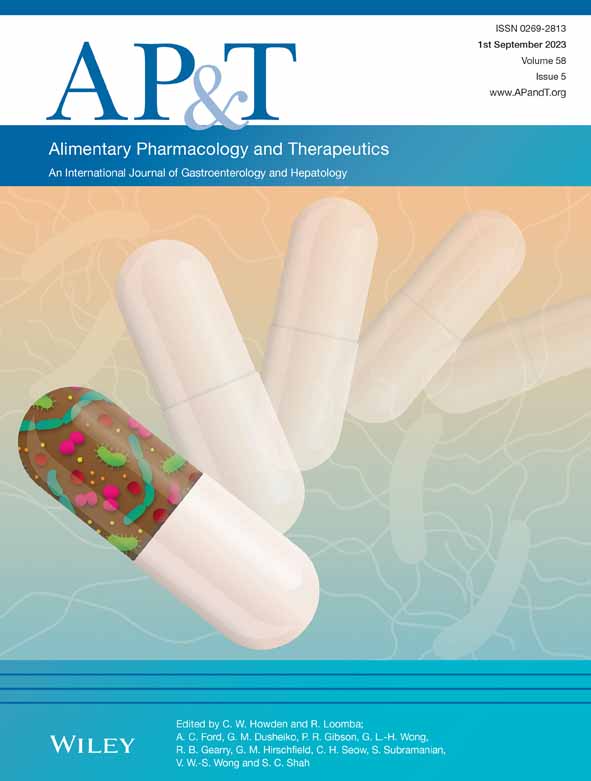Higher dietary fibre intake is associated with lower risk of inflammatory bowel disease: prospective cohort study
Minzi Deng and Lintao Dan contributed equally.
The Handling Editor for this article was Dr Sreedhar Subramanian, and it was accepted for publication after full peer-review.
Summary
Background
Limited prospective studies that have examined the association of dietary fibre with IBD have provided inconsistent evidence.
Aim
To examine any associations between dietary fibre intake and subsequent incidence of IBD, Crohn's disease (CD) and ulcerative colitis (UC)
Methods
We conducted a prospective cohort study of 470,669 participants from the UK Biobank and estimated dietary fibre intake from a valid food frequency questionnaire at baseline. Incident IBD was ascertained from primary care data and inpatient data. Cox proportional hazard models were used to estimate the hazard ratios (HRs) and 95% confidence intervals (CIs) for associations between dietary fibre intake and the risk of IBD, CD and UC.
Results
During an average follow-up of 12.1 years, we ascertained 1473 incident IBD cases, including 543 cases of CD and 939 cases of UC. Comparing the lowest quintiles, an inverse association was observed between dietary fibre intake and risk of IBD (HR 0.74, 95% CI 0.58–0.93, p = 0.011) and CD (HR 0.48, 95% CI 0.32–0.72, p < 0.001), but not UC (HR 0.92, 95% CI 0.69–1.24, p = 0.595). For specified sources, dietary fibre intake from fruit and bread decreased the risk of CD, while dietary fibre intake from cereal decreased the risk of UC.
Conclusions
Higher consumption of dietary fibre was associated with a lower risk of IBD and CD, but not UC. Our findings support current recommendations to increase the intake of dietary fibre.
CONFLICT OF INTEREST STATEMENT
All authors declare that they have no competing interests.




